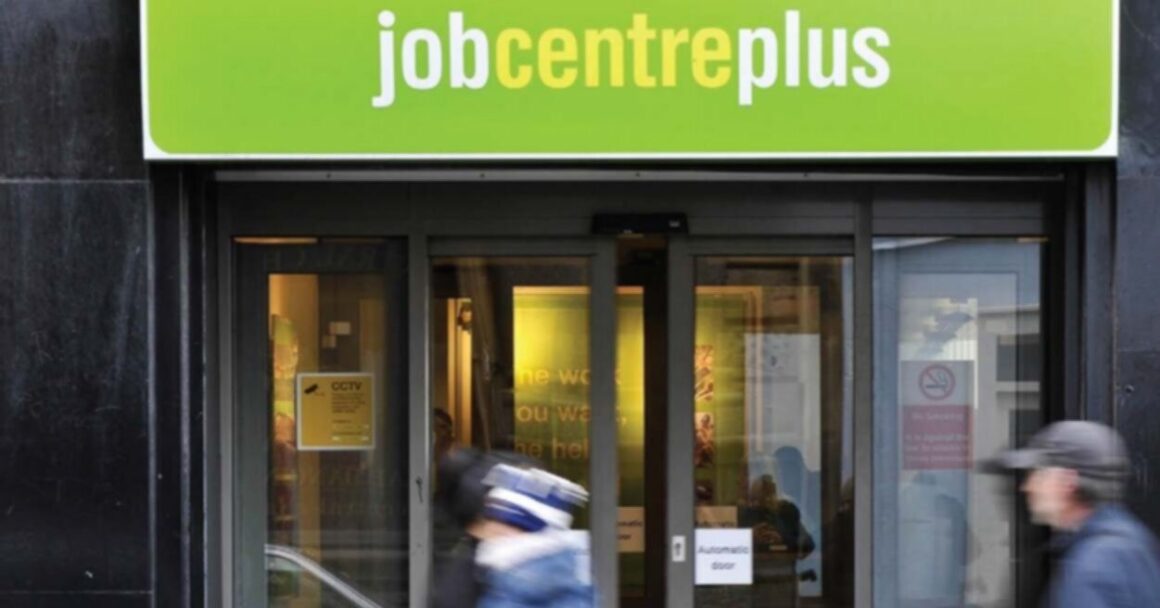

It’s hard sometimes to tear oneself away from the news of increasing death toll from Coronavirus and its inevitable concentration of victims among working class and Black and minority ethnic families.
Understandably, trade unionists’ primary concern has been over shortage of PPE for frontline staff, which stretches from the NHS to care homes and beyond. Ten London bus drivers have died from Covid-19, for example, because for two weeks companies refused to close front doors for fear of losing fares.
But there is another epidemic sweeping the world, including Britain, and that is unemployment.
Universal Credit
In the last two weeks of March, 950,000 people successfully applied for the income support part of Universal Credit. The DWP has moved 10,000 backroom staff onto the frontline to cope with the 10-fold surge in demand.
Although Rishi Sunak trumpeted a temporary rise of £20 to top up the paltry £94 a week (£63 for the under-25s) UC benefit, this still leaves it below the European average. Worse still, away from the cameras, the Work and Pensions Secretary, Therese Coffey, said, “The underlying principles of Universal Credit have not gone away. By that I mean the design that this is supposed to be based on your general income, we need a month to assess what your likely income’s going to be.”
In other words, claimants will still have to wait five weeks for their first payment. Any quicker payment is made only as a loan which, of course, has to be paid back. The call for initial payments to be made as grants, which has been raised even by such respectable organisations as the Salvation Army, has been rejected out of hand by the government.
Many hundreds of thousands more are surviving on £92.25 a week Statutory Sick Pay, which Health Secretary Matt Hancock admitted he could not live on. This is the plight of many, probably most of the 5 million in the gig economy, according to the IWGB, which is taking the government to court over its failure to protect precarious, zero-hours, etc. workers.
Coffey also confirmed that the Home Office had “not yet changed their policy and so we are not extending” benefits to immigrants. Contrary to nationalist and social chauvinist (e.g. Lexit) suggestions, immigrants remain at the most vulnerable end of the scale with “no recourse to public funds”. A meagre £500 million has been made available to councils to cover council tax and rent defaults.
Families go hungry and, as poverty grows, so does susceptibility to disease. This is as cruel a result of Tory misrule as the criminal failure to keep stocks of PPE and testing equipment for a widely predicted epidemic of this nature.
It is impossible to obtain an accurate view of who make up the million new claimants or even to know how fast it is growing because updated figures will not be released until May 19. But it is safe to assume that it will include many of the bogus self-employed, precarious workers and many of those in the lower income brackets.
While 90 percent of workers in average to well-paid jobs can work from home, the figure for those in low-paid and precarious jobs is exactly the opposite, nine out of ten cannot work from home. Many of those, like the 2,000 construction workers crammed onto the HS2 site, will be carrying out non-essential work and endangering their and the public’s health; many others will have lost their jobs.
Tories’ strategy…
According to the Financial Times. Paul Dales, UK economist at Capital Economics, said the new leap in benefit claims suggested, “The government support designed to keep people employed isn’t working”. He continued to say that if the rate of increase continued at this pace, the UK unemployment rate could exceed 10 per cent by mid-April, a rate not seen in the UK for 26 years.
The question is, will this be just a short-term glitch and a speedy recovery likely? Many economists say no. They have been warning of a global slowdown way before the pandemic. Coronavirus just provided the catalyst.
One of the long-term problems is corporate debt (leaving to one side for the moment sovereign state debt and household debt). According to Julie Palmer of Begbies Traynor, there are some 490,000 UK companies at risk and “If coronavirus affects even 5 per cent, that would double the rate of corporate insolvencies”.
The decision which companies survive and which fail will ultimately lie with the banks. Business Secretary Alok Sharma took a swipe at the bankers, complaining, “It will be completely unacceptable if any banks were unfairly refusing funds to good businesses in financial difficulty.”
But he is powerless to do anything about it. Banks don’t throw good money after bad, nor do they invest in enterprises that look too risky in these uncertain times. Any capitalist solution will cause closures and job losses.
… or workers’ strategy
All we have heard from our trade union and Labour Party leaders, however, is praise for Rishi Sunak’s measures.
Trades Union Congress (TUC) general secretary Frances O’Grady hailed his package as “a breakthrough” saying, “Large-scale wage subsidies are the best way to boost household finances and keep businesses running. And they’ll help our economy bounce back after this crisis.”
Likewise, Keir Starmer has refused to criticise the government’s response, telling Robert Peston, “I don’t think the public want to hear the leader of the Labour Party in opposition simply quipping about what should have been done.” He has let it be known that he would join a Government of National Unity if asked.
But the only chance of Starmer being asked into a coalition – in fact a Popular Front – would be if Johnson needed him to help force through a new round of austerity and sky high unemployment. The price of class collaboration at governmental level, as at workplace level, is always paid by the working class.
We should demand